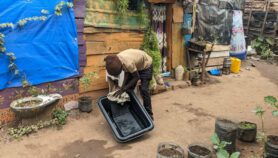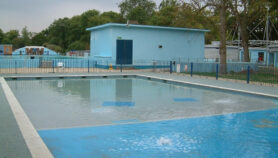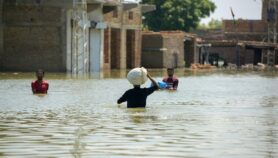By: Michael Malakata
Send to a friend
The details you provide on this page will not be used to send unsolicited email, and will not be sold to a 3rd party. See privacy policy.
[LUSAKA] Scientists in Zambia have warned that water in the Zambezi, southern Africa’s longest river, has become highly acidic and unfit for human consumption.
The results of their study were presented at a parliamentary briefing last week (9 November) by Ben Kapita, minister of agriculture and cooperatives.
Scientists from the Ministry of Agriculture and Cooperatives and the School of Veterinary Medicine at the University of Zambia carried out the research last month as part of an investigation into the cause of blisters and sores found on fish caught from the river.
Namibian scientists revealed earlier this year that the lesions were symptoms of a disease called epizootic ulcerative syndrome that is caused by a fungal pathogen (see Zambezi fish disease mystery cracked).
The Zambian scientists say the syndrome is an opportunistic disease associated with strongly acidic river water.
They found evidence of such acidity in the Zambian section of the Zambezi and warned that the condition would persist if not addressed. Acidic water can also cause brain and kidney damage in humans.
University of Zambia professor of preventive veterinary medicine, Kenny Samui, who led the study, said high acidity in the soil in the western part of Zambia and the higher-than-normal floods of the last rainy season had caused the acidity.
"Rain water that came from the uplands brought acid into the water, as well as sulphides. When the sulphides were exposed to oxygen and there was oxidation, the formation of sulphuric acid took place and caused the acidity of the water," Samui told SciDev.Net.
There are also low concentrations of calcium and magnesium in the water, which normally provide a buffer to neutralise acidity and alkalinity in the water, said Samui.
"The best option for now is to try and reduce the acidity of the waters using neutralising agents," he said.
Kapita told parliament that the government is planning to add neutralising compounds to the water.
He added, however, that the Zambian government would have to consult neighbouring countries — including Botswana, Namibia and Zimbabwe, who also share the Zambezi — before taking any action.













